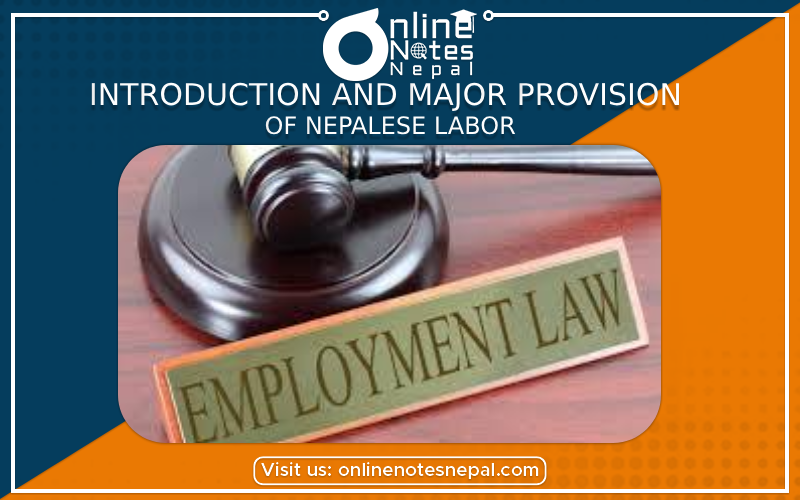Published by: Anu Poudeli
Published date: 07 Aug 2023

The Nepalese labor market is an important aspect of the country's economy, determining the country's development and prosperity. Nepal's labor force is diversified, with people working in agriculture, manufacturing, services, and overseas jobs. Labor migration has been a prominent characteristic of the country's geographic and socioeconomic settings, with many Nepalese pursuing opportunities overseas for better livelihoods.
Major Nepalese Labor Provisions:
1.Labor Laws and Regulations: Nepal has a number of labor laws and regulations in place to safeguard employees' rights and to ensure fair salaries, working conditions, and safe workplaces. The Labor Act, 2074 (2017) is the major piece of legislation governing labor-related issues in the country.
2.Employment Contracts: The Labor Act mandates businesses to give their employees with a formal employment contract outlining the terms and conditions, salary, working hours, and other pertinent elements.
3.Minimum Wages: The government establishes minimum wage requirements for various areas and industries to ensure that workers are fairly compensated for their efforts.
4.Working Hours: The Labor Act allows for a weekly maximum of 48 hours of work, with an eight-hour workday. Any hours worked in excess of this restriction are considered overtime and must be rewarded accordingly.
5.Working Hours : Employees in Nepal are entitled to a variety of sorts of leave, including yearly leave, sick leave, maternity/paternity leave, and public holidays.
6.Occupational Health and Safety: Employers are required to create a safe and healthy working environment for their employees, in accordance with applicable laws.
7.Child work: Child work is absolutely prohibited under Nepalese labor regulations. Children under the age of 14 are not permitted to work, and those between the ages of 14 and 18 are only permitted to work in non-hazardous settings for a restricted number of hours.
8.Social Security: The government has put in place different social security plans to help workers in times of retirement, disability, and financial hardship.
9.Foreign Employment Regulations: Because labor migration is common in Nepal, the government has special measures in place to regulate foreign employment agencies and protect migrant workers' rights.
10.Labor Unions : Workers have the right to organize labor unions and engage in collective bargaining in order to fight for their rights and interests.
Despite these measures, there are still issues in successfully administering and enforcing labor laws, particularly in the informal sector. Furthermore, the problem of unauthorized or informal labor raises serious issues, as many Nepalese laborers continue to work without proper legal safeguards or social security coverage.